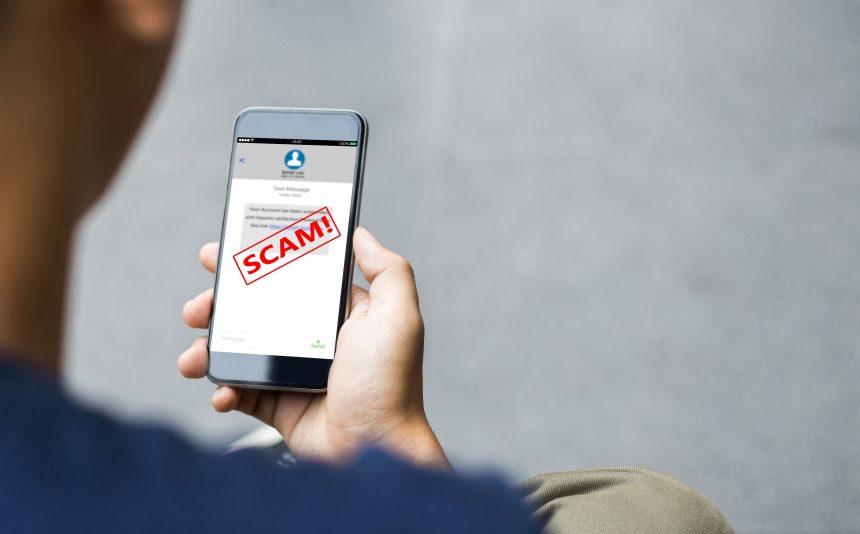One particularly deceptive threat has been making waves—the “Coinbase – You Have 1 New Transaction” scam. This scam, which imitates the legitimate cryptocurrency exchange platform Coinbase, has caught the attention of many unsuspecting users. The goal is simple but harmful: to steal money and personal information by exploiting users’ trust in a reputable service. In this article, we’ll break down how this scam works, the associated risks, and provide a comprehensive guide to both removing it and preventing future infections.
Download SpyHunter Now & Scan Your Computer For Free!
Remove this and many more malicious threats to your system by scanning your computer with Spyhunter now! It’s FREE!
What is the “Coinbase – You Have 1 New Transaction” Scam?
The “Coinbase – You Have 1 New Transaction” scam involves fraudulent emails that appear to be from Coinbase, informing recipients of a pending transaction. The email claims that a Bitcoin transfer of 0.9473 BTC (or similar amounts) was sent to their Coinbase account via Binance, but the transaction allegedly couldn’t be completed due to a missed step in the payout process.
The email contains a link to a fraudulent website designed to look like the real Coinbase platform. This website—base-fastbitco[.]top—attempts to trick users into entering sensitive personal and financial details in exchange for the “missing” Bitcoin payout.
At first glance, the website may seem legitimate, with the branding and layout closely resembling the actual Coinbase page. However, its purpose is to deceive victims into providing personal information and paying fake service fees. Once users click the “GET BITCOIN” button, they are prompted to create an account by entering personal details such as name, email, and password. From there, they are led to a fake transaction search and are eventually told they need to pay a fee (around $62) for the payout to proceed.
Despite these promises, victims never receive any funds and often lose money or have their personal data compromised.
How the Scam Works
The scam operates through several carefully planned stages to deceive the victim:
- Initial Contact via Email:
The scam begins with an email claiming to be from Coinbase, stating that a transaction (often a large amount of Bitcoin, e.g., 0.9473 BTC) is waiting to be completed. The email includes a link to the fake Coinbase website where the user can “finalize” the transaction. - The Fake Website:
The website is designed to mimic the real Coinbase interface, but with subtle differences that should raise suspicion. The page falsely claims that the user must complete the payout process within 24 hours to avoid having the funds returned to the sender. - Request for Personal Information:
Users are asked to click a “GET BITCOIN” button, which leads to a form where they must input personal details such as their name, email address, and password. - Fake Transaction Search:
Upon submitting the information, users are instructed to search for their transaction using Coinbase’s platform. The scam site mimics this feature but provides fake results, leading to a fabricated support chat. - Payment Request:
The scam culminates in a demand for payment—typically a $62 “service fee”—in order to release the Bitcoin payout. Users may be asked to provide a Bitcoin wallet address or even their credit card information. - The Outcome:
After paying the fake fee, victims receive no payout. Worse yet, their personal information may be used for identity theft or sold to other malicious parties. Those who have entered payment details risk their financial security.
Risks and Consequences
The consequences of falling victim to the “Coinbase – You Have 1 New Transaction” scam can be severe. Some of the risks include:
- Monetary Loss: Victims may lose the amount they paid as part of the fake service fee, with no chance of recovering it.
- Identity Theft: By entering sensitive information (e.g., name, email, passwords, payment details), victims expose themselves to the risk of identity theft, which could lead to further scams or financial losses.
- Further Cybersecurity Threats: Scammers may use the stolen information to target victims with more advanced scams, such as phishing attempts or malware attacks.
- Reputation Damage: If the scam leads to the leakage of personal or financial information, it could damage the victim’s online reputation, especially if the data is sold or shared on the dark web.
Detection and Identification
There are several signs that users can look out for to identify this scam:
- Suspicious Email Address: The email address that sends the scam message is unlikely to be from a legitimate Coinbase domain. Always verify the sender’s address.
- Impersonal Tone and Poor Grammar: Legitimate companies like Coinbase typically use professional language and provide specific details. Scam emails often have vague language, grammatical errors, and odd phrasing.
- Unrealistic Claims: Promises of unclaimed cryptocurrency transfers or fees that need to be paid for a transaction to be completed should be treated with suspicion. Legitimate cryptocurrency transactions do not require users to pay “service fees” for completing payouts.
- Fake Countdown Timers and “Too Good to Be True” Promises: The use of countdown timers, urgency, and phrases like “You must act fast or lose your funds” are classic red flags of a scam.
How to Remove the “Coinbase – You Have 1 New Transaction” Scam
Download SpyHunter Now & Scan Your Computer For Free!
Remove this and many more malicious threats to your system by scanning your computer with Spyhunter now! It’s FREE!
If you’ve been targeted by this scam or have interacted with the fraudulent website, follow these steps to minimize the damage:
- Disconnect from the Internet: If you clicked on any suspicious links or entered personal information, disconnect your device from the internet immediately to prevent further interaction with the scam site.
- Change Your Passwords: For any account you used to enter personal details (email, banking, etc.), change your password immediately. Make sure to use strong, unique passwords and enable two-factor authentication (2FA) wherever possible.
- Run Antivirus or Anti-Malware Software: Use reputable antivirus or anti-malware software to scan your device for any potential threats. This can help detect any malicious programs that may have been installed during the scam.
- Notify Your Bank or Credit Card Provider: If you entered payment information, contact your bank or credit card provider to report the fraudulent charge. They may be able to reverse the payment or flag the transaction as suspicious.
- Report the Scam: Report the scam to the authorities, such as the Federal Trade Commission (FTC) in the U.S., or other relevant regulatory bodies in your country. You can also report it to Coinbase to help protect others.
Preventive Methods to Avoid Future Scams
To protect yourself from similar scams in the future, follow these best practices:
- Be Cautious of Emails: Always verify the legitimacy of emails, especially those that contain links or attachments. Never click on links or download attachments from unknown senders.
- Use Multi-Factor Authentication (MFA): Enabling MFA on your accounts adds an extra layer of protection and helps safeguard your accounts against unauthorized access.
- Educate Yourself: Stay informed about the latest scams and phishing techniques. The more aware you are, the better equipped you’ll be to recognize suspicious activity.
- Check the URL: Always double-check the URL of the site you are visiting. Fraudulent websites often use URLs that look similar to legitimate ones but have subtle differences (e.g., base-fastbitco[.]top instead of coinbase.com).
- Use Reliable Security Software: Keep your antivirus and anti-malware programs up to date to help prevent phishing and other types of scams from compromising your device.
Conclusion
The “Coinbase – You Have 1 New Transaction” scam is a deceptive phishing attempt designed to steal both money and personal information from unsuspecting individuals. By understanding the tactics scammers use and following the recommended removal and prevention methods, you can protect yourself from falling victim to this and similar threats. Always remain vigilant and skeptical of unsolicited emails or offers that sound too good to be true.





